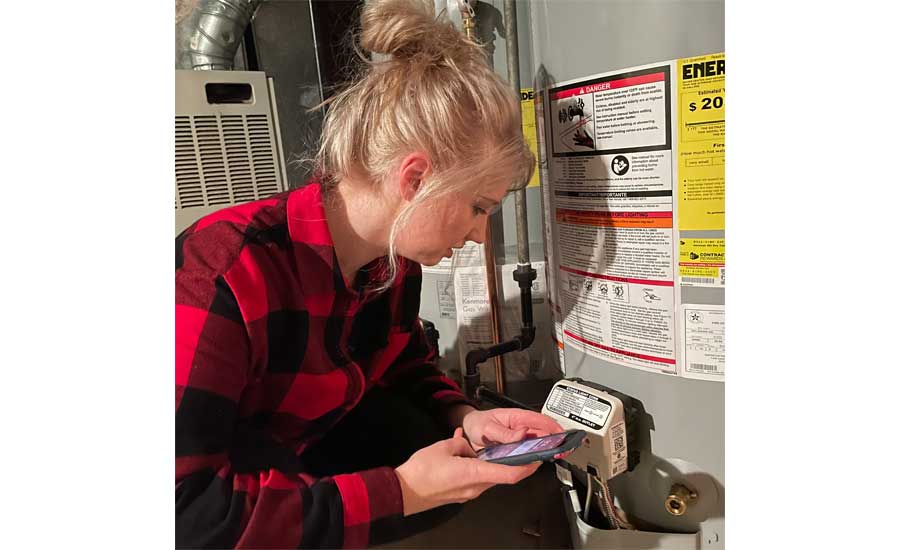Half of the HVAC contractors who responded to a recent survey by EGIA said they don’t market to millennials. I guess they don’t see the point of marketing to kids who live in their parents’ basements. Except millennials aren’t kids anymore, and they no longer live in their parents’ basements. In fact, millennials are buying homes at a rapid clip.
The most recent data from the Census Bureau shows about 40% of millennials own their homes. And that number is growing fast. At the start of the year, Realtor.com forecasted that millennials’ share of mortgage originations would surpass 50%, outnumbering Gen X and Baby Boomers combined. If anything, that number likely rose. Record-low mortgage rates and a desire to move out of the cities led to more homes being sold in the second half of the year than in the first.
So why do so many HVAC contractors ignore this market? Part of it has to do with the flawed concept of generational grouping. If age is just a number, why do we group people by when they were born? These groups are often very vague. The widely accepted range is 1981 to 1996, although some definitions start as late as 1985 and others end as late as 2000. Whatever the endpoint is, most millennials aren’t young. The birth rate for millennials peaked in the late ‘80s. This means most are over the age of 30 and many are in their late 30s. Some millennials even (brace yourself) turned 40 this year.
A lot happens in a decade. Even more happens in a decade and a half. So that’s another issue with generational grouping. Think about Baby Boomers, a group that covers the years 1946 to 1964. The major musical event for Baby Boomers born in 1950 was Woodstock. For those born in 1960, it was “Saturday Night Fever.” That’s hardly the same. Now look at millennials. Let’s say you have three siblings born between 1982 and 1993. They all text, but the first one started doing so on a beeper, the second on a flip phone, and the third on a smartphone.
Millennials aren’t all alike. But they are perceived that way and face stereotypes as a result. One is that the increased access to communication I just described has made them impatient. But is that unique to this generation? When I covered auto retailing, I sat through many presentations about what millennials want when it comes to the sales process. One message I heard over and over again was that millennials don’t want to spend hours sitting in a dealership. My thought was, “Boy, that’s so different from my generation. I remember how much my wife and I enjoyed spending a beautiful spring day sitting in a Toyota dealership waiting to finish the paperwork for our minivan.”
Nobody likes this stuff. Nobody bothered to ask anybody before. And we’ve all become less accustomed to waiting and abiding by others’ schedules. In the past, you had to watch a TV show at the time the network dictated. Today, with DVRs and streaming services, people watch when they want.
Another stereotype is that millennials are lazy — that they are slackers. The term “slacker” actually emerged in the ‘90s to describe Gen X. Prior to that time, Gen X was portrayed in the media as a group of uptight overachievers. Think of Alex P. Keaton, if you’re old enough to remember the TV show “Family Ties.” So what changed? The 1990-1 recession. When the same young people who were hailed as heroes for liberating Kuwait couldn’t find jobs upon returning home, they were labeled as lazy. The same has happened to millennials, many of whom came of age just in time for the Great Recession.
Are there differences between young people today and young people in the past? Of course. The times are always a-changing. But many of the differences are often overblown, as are the similarities. So let’s say you do want to market to these people who are quickly buying homes and the HVAC systems that come with them. How do you do it?
Are you on Facebook? Because if you’re on Facebook, you’re already marketing to millennials. Facebook remains the most popular social media site for millennials. Second is Instagram, Facebook’s photo-sharing platform. If you want to reach millennials, focus on Facebook.
What type of marketing works best? They did grow up watching shows like “Captain Planet,” so they do have concerns about the environment. But many came of age during a massive economic downturn, so they watch their pennies. Energy efficiency would seem a good point to stress, as it covers both kinds of green. Technology, such as smart thermostats, also holds an appeal.
Ultimately, though, it comes down to comfort, as with every other group. The best way to market to those 40 and under is to address their concerns — but don’t condescend. As millennial HVAC contractor Phil Mutz recently said to me, “At what point are we going to say these people are full-functioning adults with all the back pains and everything else everybody has to deal with?”









